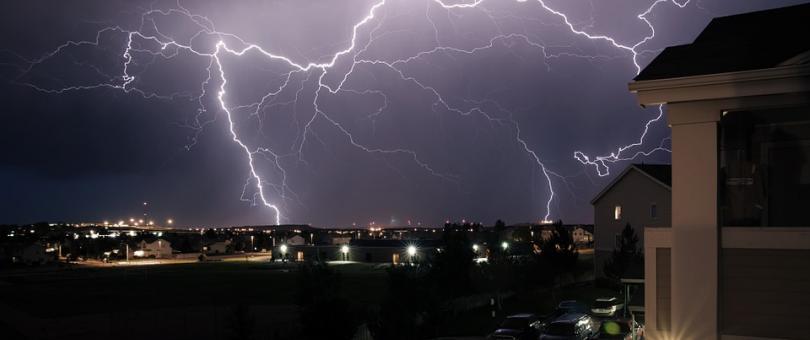In winter, we pull up a lot of unused electrical appliances and hence, pose ourselves to a major risk of house fires. About 26000 fires every year happen due to electricity in the United States and all could be avoided if you pay a bit more attention. Learn how to do it through this post on avoiding electrical problems in Winter.
What to do in The Winter to Avoid Electrical Problems?
1. Electrical inspection
Not everyone requires an electrical inspection but if you just moved to a new place or your property is more than a decade old, chances are your house is at risk.
With so many appliances that have got added to your house in last ten years, the load electrical fixtures can handle at a time still stays the same. They’re usually overloaded and ultimately break down to cause short circuits or electrical fires.
Moreover, when it’s winter, we pull a couple of more appliances to beat the heat and end up putting more strain on the already overloaded system.
Even the wiring wears off with time, and through an electrical inspection, you can eradicate the risk of cross wiring. Know more about the benefits of an electrical inspection by a qualified electrician.
2. Possibly hazardous electrical devices in winter
Three main devices are mostly brought out in winter and significantly contribute to electrical house fires. Those are electrical blankets, space heaters, and fairy lights.
Electrical blankets get worn out over time, and if you don’t check them thoroughly, they can cause electrocution and fire. Those frayed edges indicate that you need replacement.
Space heaters are the portable heaters which people often use in addition to their standard HVAC system. It’s all good until you start using extension cords for such heaters or place them near inflammable things or somewhere near the curtains. Just don’t use such appliances near toddlers or leave these unattended. Also, plug them directly into the socket instead of using extension cords. If you feel you don’t have enough electrical fixtures to plug all the appliances, consider calling an electrician and adding a few more. That will be a safer and more permanent way.
Hundreds of electrical fires happen during the holiday season due to Christmas lights. These come really cheap, and at the same time, their quality is compromised. They are fantastic Christmas decoration items, but you need to use them with caution. Don’t use lights with broken wires and consider investing in high-quality ones.
3. Add safety equipment to enhance electrical safety
These do not winter season specific but are extremely required. You need smoke alarms, surge detectors and properly functioning circuit breakers.
Circuit breakers mostly help you detect a fault in some of your appliances. When they malfunction, the circuit breaker trips to cut off the electricity and prevent serious damage to the device as well as your house’s electrical wiring.
Hardwired smoke alarms are a must especially if you don’t stay at home all the time. You can access the alarm system through your mobile device anywhere and always know about the safety of your house.
Surge detectors prevent electricity overload. They’re especially important to save your expensive laptops and mobile devices from damage.
4. Test run the backup generators
Most of us require backup generators in winter as there are higher chances of power outages due to snowfall. Instead of relying on the last minute to see if your backup generator is working or not, get it checked earlier during fall. Call an electrician to check it for you. In fact, it’s a good idea to hire a trained professional to look for an electrical issue if you suspect there’s one but aren’t able to figure out what exactly it is.
5. Make efforts to contain your electricity bills
Your HVAC system has to work really hard to keep the indoor temperature at an optimum level. It’s important for you to take measures to reduce the bill as much as possible. Proper insulation of your home will reduce the leaks and save you a lot of money on energy bills. Also, HVAC maintenance can help you increase the efficiency of the system and save some money.
6. Regular precautions
Last but not the least, some things you must remember about maintaining electrical safety is not touching electrical appliances and fixtures with wet hands. Make sure kids cannot reach the electrical fixtures. Those little fingers shouldn’t be able to reach the electrical switches, or it could be dangerous for them.
If you see a person experiencing electrical shock, don’t rush to pull them away. Rather, rush to turn off the electricity supply. The person who is under shock will be a conductor, and you won’t help if you touch him. You will get affected as well. So, the best things to do at such a moment is to cut off the power supply and then begin first aid.
If due to a snow storm, you have a power outage, switch off all the electrical appliances. The power surges that happen due to the sudden power supply can damage the electrical devices. It may come on and off and be damaging. So, let the electricity get stable, use a small CFL to test, and then switch on the appliances.
Also, if the power lines have broken due to the storm, try not to step out of your house until they have been cleared. Those might be live wires and can give you a fatal shock. Stay safe. Be careful.
These are pretty much all the tips I have for you to maintain electrical safety inside your home in winter. I hope these will help.


